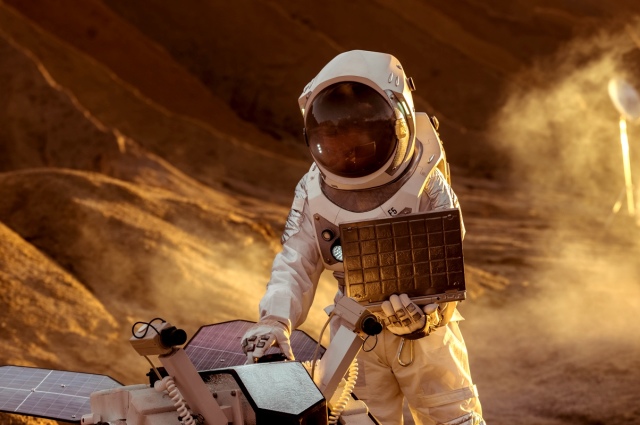Biologists once again pointed out the danger of alien organisms invading and sending terrestrial ones into space, and recommended fighting the threat taking into account past experience of encounters with invasive species.
Today, the near-Earth orbit has become more accessible than ever. Space tourists go on a flight on private rockets and ships, government agencies are planning to deploy a permanent base on the Moon, and Elon Musk has set his sights on the exploration of Mars. However, this process carries new unprecedented threats, and one of them drew the attention of Australian scientists, whose article was published in the journal BioScience.
First of all, Andrew Woolnough from the University of Melbourne and his colleagues note that alien organisms are able to accidentally get to Earth on board one of the many spacecraft. If he finds suitable conditions here and no threats dangerous to himself, his invasion can cause enormous harm to the biosphere of the planet.
It seems that this is especially close to Australian biologists: the once isolated continent with unique endemic ecosystems has experienced and is experiencing a number of invasions of invasive animals and plants from other parts of the world. The chances of such an invasion from outer space are negligible - especially considering that we have not yet discovered a single extraterrestrial organism. However, scientists believe that the threat is so great that it is extremely serious to take such a possibility.
The second option of danger is the transfer of terrestrial microorganisms on ships and satellites into space, with subsequent return back. It has already been shown that in the conditions of outer space, bacteria mutate much faster, becoming more resistant and even acquiring resistance to antibiotics. Brought to Earth, they can pose a particular threat.
Something similar is already happening: a lot of microbes are being found in the "clean" rooms where spacecraft are being assembled, and in 2019, the Israeli startup Beresheet completely amazed the world by sending slow walkers on board its lunar probe without any warning. It is not surprising that Andrew Woolno and his co-authors call the existing biosafety protocols insufficient and call for the introduction of stricter procedures and requirements.
The Committee for Space Research (COSPAR), acting under the International Council for Science, has already organized a "Commission for the Protection of the Planet" ( Panel on Planetary Protection ), but not a single biologist, an invasion specialist, has been involved in its work. Meanwhile, scientists believe, it is this knowledge that is necessary to develop adequate biosafety measures that will protect terrestrial life from new, unprecedented threats.

